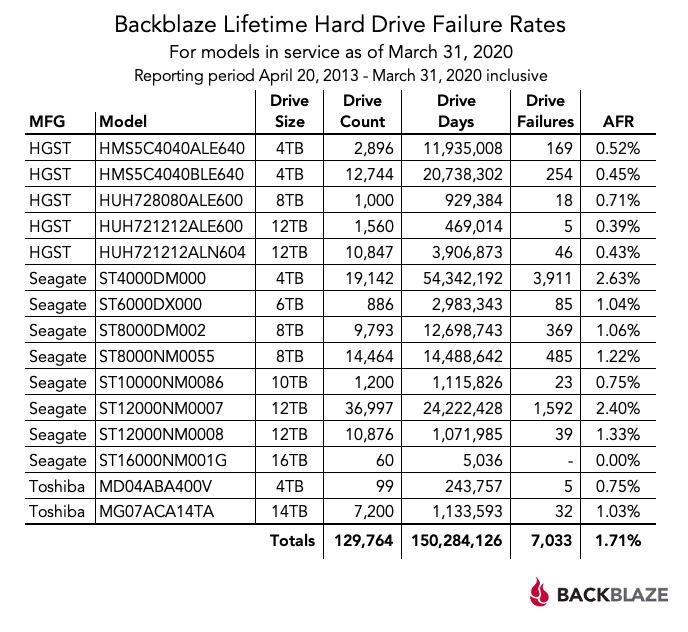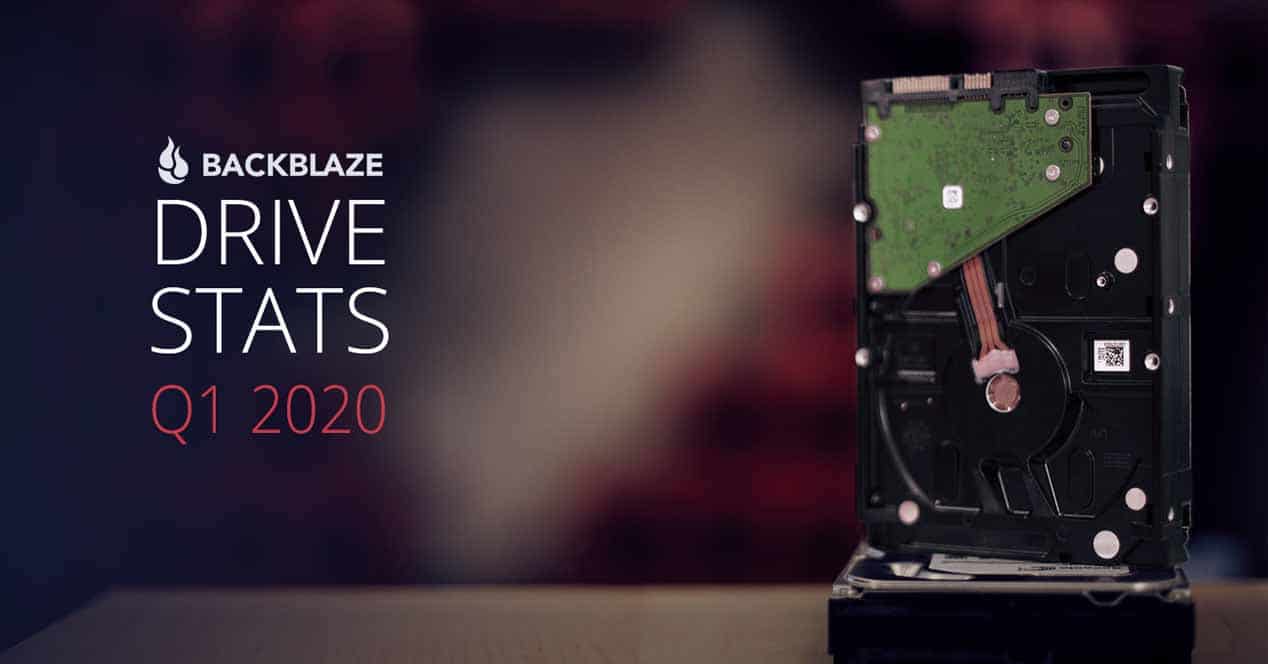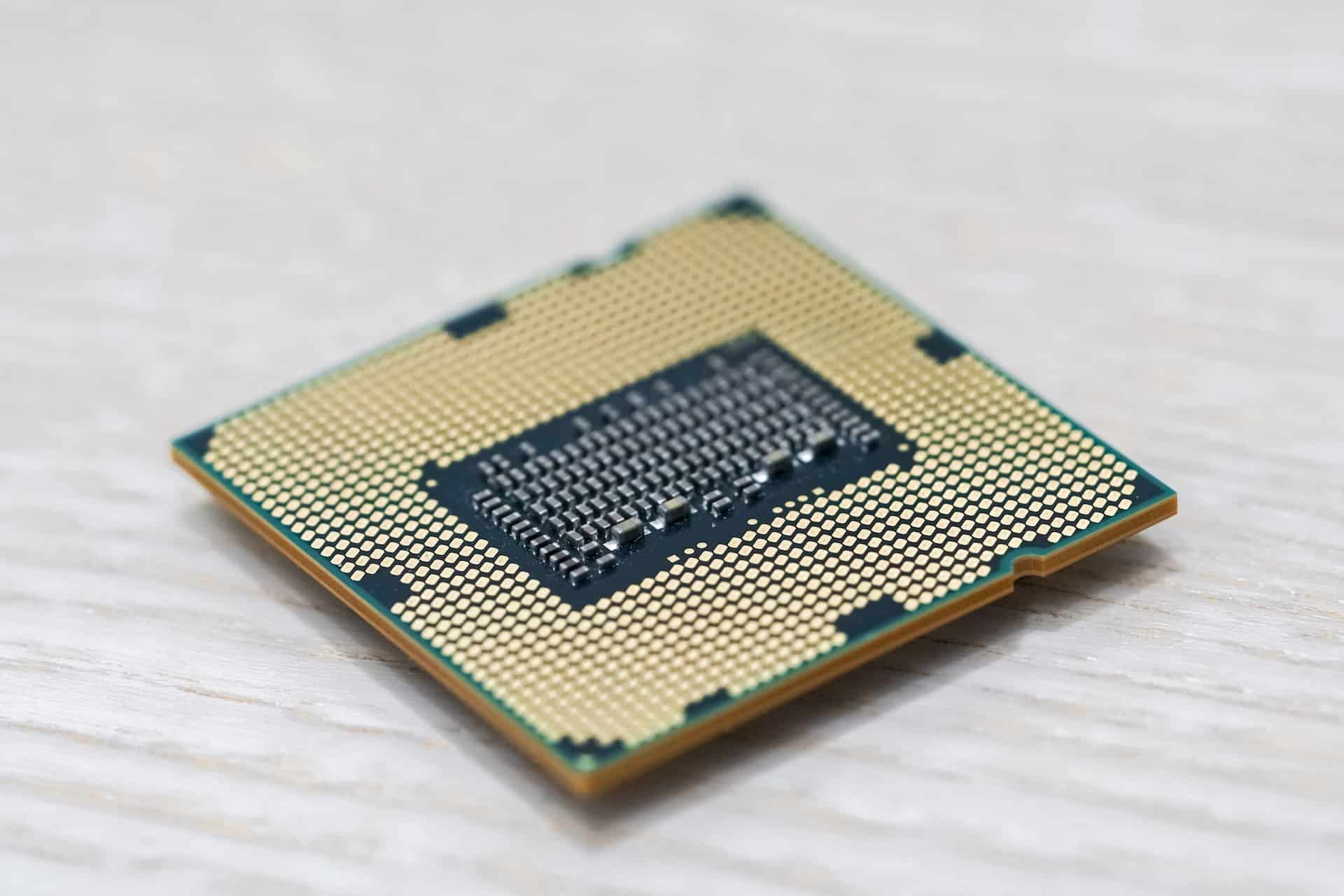Of the 132,339 hard drives connected to your system, 2,380 were system drives (used to boot your servers), and 129,959 disks for storage, which are the ones that are going to be used in this statistic since the system disks have a much lower level of utilization than the data disks. They also use SSDs for caching, but in this case they are not accounted for by statistics because they just wanted to see the reliability of traditional mechanical disks. Similarly, it is not taken into account which hard disk is slower or faster.
The most reliable records of the quarter
At the end of the first quarter of this year, Backblaze had 129,959 hard drives working for storage, but if they remove the disks that they use for tests and those models that had less than 60 units (consider that they must have at least 60 units of one disk hard to put it in statistics), there are a total of 129,764 hard drives used for statistics.
According to these data, the annual failure rate is 1.07%, and according to the company it is the lowest they have had since 2013, and is in fact significantly lower than the one they had in the same period last year (1 , 56%).
The reason for this low rate is that during this three-month period, a total of four models from three different manufacturers had a failure rate of zero. None of the models Toshiba 4TB, 16TB Seagate and 8TB and 12TB HGST They failed, but if a single 16TB Seagate model had failed, since there were only 60 drives, the annual failure rate would have risen to 7.25%. Likewise, if a 4TB Toshiba had failed, of which there were only 99 units, the rate would have risen to 4.05%.
By contrast, none of the 8 and 12 TB HGST drives failed, and of these models there was indeed a considerable number (1,000 and 1,560 respectively), so the annual rate would not have grown as much.
The most reliable hard drives (in total)
That previous statistic is very good to make calculations in the short term, but in the end the data that interests us users is to know the reliability of hard drives in the long term, since nobody buys a disk to keep it running for three months but for all its useful life, right?
These are the Backblaze data from April 1, 2013 to December 31, 2019, a period that is certainly much more representative to determine which hard drives are the most reliable.

Here we can see a much more complete statistic and from which we can extract very interesting data, such as the hard drive that has had the lowest failure rate (not counting the 16 TB Seagate that apparently have just started to use, have only 60 units and only 5,036 days of use) and that therefore we can consider the most reliable of all is the 12TB HGST in its two variants (HUH721212ALE600 and HUH721212ALN604).
In fact, in general it seems that the brand of hard drives with the best reliability is HGST, given that its units have the lowest failure rate, both on average and globally. On the contrary, according to these data the least reliable hard drive is the Seagate ST4000DM000 4 TB, followed by the 12 TB model (ST12000NM0007), although it is also true that it coincides with the hard disk models that have the most units included in the statistics.
In short, and if we have to base ourselves on this statistic (which by volume is certainly the most reliable we are going to find), the most reliable hard drives are those of HGST, followed by those of Toshiba and leaving Seagate in last position .















